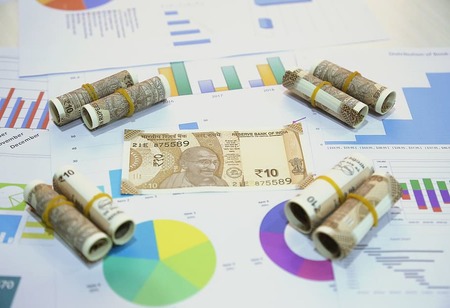Pick up in economic activity to shoot up nation's CAD to over 1% in FY22
 With a pick up in economic activity and the consequent rise in imports, India is expected to quickly turn from a position of current account surplus in FY21 to that of current account deficit (CAD) in FY22.
With a pick up in economic activity and the consequent rise in imports, India is expected to quickly turn from a position of current account surplus in FY21 to that of current account deficit (CAD) in FY22.
As per an assessment by Kotak Institutional Equities (KIE), the country's current account deficit to GDP is likely at 1.1 per cent in FY22 with rupee remaining strong against dollar and remaining in the Rs 72.5-74 range in near term.
The Covid-19 pandemic and nationwide lockdown last year has impacted the economic activity in the country with GDP plummeting by over 24 per cent in April-June quarter of FY21.
For the full year FY21, the current account balance recorded a surplus of 0.9 per cent of GDP as against a deficit of 0.9 per cent in FY20 on the back of a sharp contraction in the trade deficit to $102.2 billion from $157.5 billion in FY20. This was the first time that the country has recorded an annual current account surplus in 17 years. But this surplus was largely on account of a slowdown in imports due to shrinking economic activity.
We expect the overall external sector to remain comfortable but will be subjected to risks from a widening trade deficit, high commodity prices, and policy normalisation in the US, and spread of Covid cases, KIE said in its report.
The rupee has been appreciating significantly recently aided by broad based dollar weakness after a soft rhetoric by the Fed Chair followed by weakening global economic data, muted RBI intervention, and heavy, although lumpy, FII flows in debt. KIE expects this appreciating bias to continue in the near term, especially given the slew of big ticket IPOs lined up in the months ahead and the persistence of wider interest rate gap. However, imminent Fed taper by end- CY2021 and widening domestic trade deficits should gradually weigh on the rupee.
"We maintain our CAD/GDP estimate of 1.1 per cent (US$34.1 bn) in FY2022E and BOP surplus of US$35 billion. We expect USD-INR to remain in the range of 72.5-74 in the near term and will be watchful of shifts in the forex space and volatility when tapering begins," the report said.




